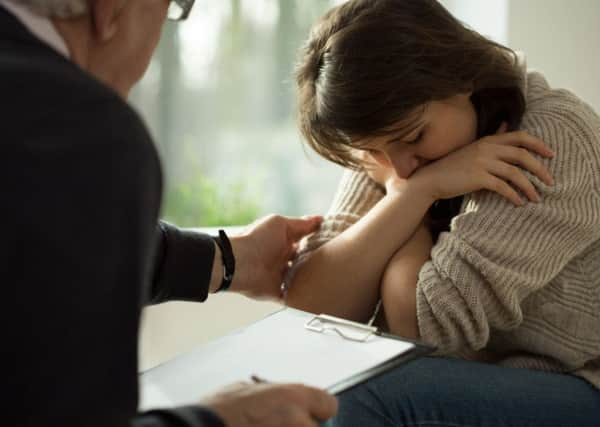Exercise helps psychosis patients


Psychosis which is triggered by schizophrenia, bi-polar and severe depression causes people to perceive or interpret things differently from those around them.
An estimated one new case is diagnosed for every 2,000 people in England in any given year.
Advertisement
Hide AdAdvertisement
Hide AdAn estimated three in 100 people will have at least one episode of psychosis at some point in their life.
A fifth will attempt to commit suicide at some point and one in 25 people will kill themselves.
Treatment uses a combination of antipsychotic medication and therapy but drugs can lead to rapid weight gain.
But a new exercise programme devised by University of Manchester researchers dramatically reduced symptoms among young people with first-episode psychosis.
Advertisement
Hide AdAdvertisement
Hide AdThe study found they displayed a 27 per cent reduction in psychiatric symptoms, which was significantly better than the control group.
Their brain functions also improved, and they achieved a slight reduction in body weight - going against expected weight gain from normal treatment.
Previous studies have shown exercise was an effective treatment for people with long-term schizophrenia but until now none had assessed its effects on psychiatric symptoms in young adults with early psychosis.
The published in the journal BMC Psychiatry recruited 31 people aged 18 to 35 who had been referred to local mental health trusts for treatment.
Advertisement
Hide AdAdvertisement
Hide AdPersonalised exercise regimes were designed that were carried out under the supervision of a researcher for ten weeks at local leisure centres.
All participants actually exceeded the target amounts of exercise, achieving 107 minutes of vigorous exercise training each week for 10-weeks.
This compares favourably with exercise programmes in healthy populations as well as in schizophrenia.
Postgraduate research student Joseph Firth at the Institute of Brain, Behaviour and Mental Health said: “Establishing an exercise regime for people with psychosis is likely to be much more effective when they are younger, and in the earliest stages of treatment.
Advertisement
Hide AdAdvertisement
Hide Ad“Getting people into a routine early on also helps set habits for life, which can make a huge difference to their long-term physical and mental health.
“Personalising exercise training to the activities which patients find most motivating helps them stick to their programme.
“This was only a pilot study, but the improvements, particularly in psychiatric symptoms, were dramatic.
“Personalised exercise at local leisure centres seems to be a cost-effective and successful way to help these young people recover.
Advertisement
Hide AdAdvertisement
Hide Ad“By reaching people early on, exercise can provide a healthy and empowering add-on treatment for young people with psychosis.
“This could massively improve their social functioning and mental health, hopefully preventing long-term disability from ever arising.”
The NHS recommends that people suffering from psychosis seek help at the earliest chance because it offers the best hope of stopping long-term problems.